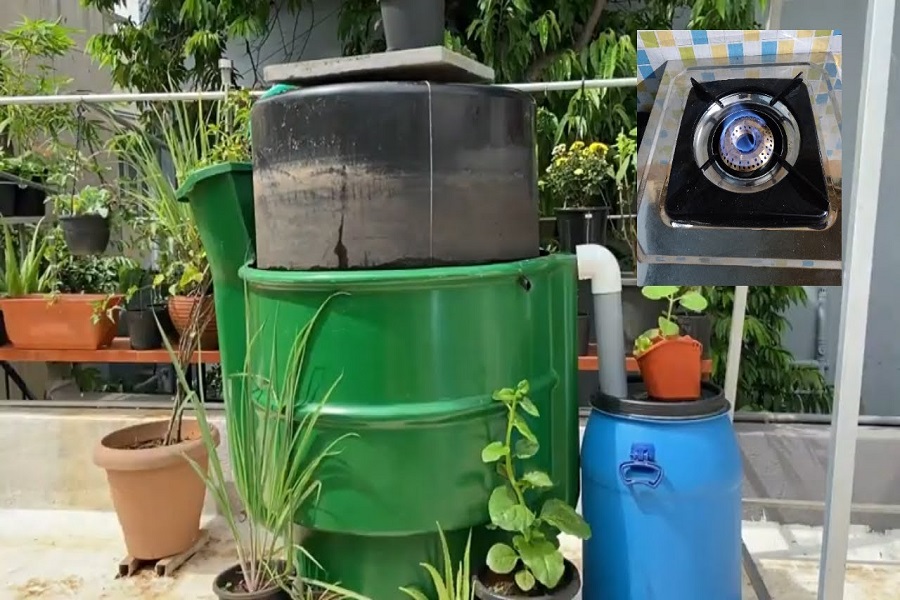
More than 27,000 household biogas plants have been installed in 19 states across the country under various schemes in the dairy sector, according to an official statement issued on Thursday.
Further, the household biogas initiative has also helped in generating carbon credits for the dairy cooperative sector.
Under the first such initiative, a total of 11,000 carbon credits have been earned by 1,040 farmers, giving a boost to both farmer incomes and contributing to the aim of achieving a circular economy, the statement said.
The figures were highlighted in a presentation by the National Dairy Development Board (NDDB) on the Circular Economy made at a review meeting chaired by Department of Animal Husbandry & Dairying (DAHD) Secretary Alka Upadhyaya here on Wednesday.
In its presentation, the NDDB demonstrated three models of biogas generation, namely the Zakariyapura Model (the Household level biogas-based Manure Value Chain model), the Banaskantha Model (Dung-based large capacity biogas plant to produce Bio CBG and Organic Fertiliser) and the Varanasi Model (Dung-based large capacity biogas plant to suffice steam and power needs of dairy plants).
These biogas plants are giving a boost to the circular economy by promoting sustainable green fuel energy and producing organic fertilisers.
Two large capacity dung-based CNG/Biogas plants with a total capacity of 140 MT/Day of dung are already operationalised and another 11 plants having a combined capacity of 675 MT/Day are under various stages of being taken up.
It was also informed that NDDB has entered into an MOU with Suzuki R&D Centre India Pvt Ltd, an affiliate of Suzuki Motor Corporation. The major objective of the MOU is to jointly design, develop, implement and scale up innovative business models to efficiently utilise cow dung as a source of energy for fuelling transportation needs and as a rich source of organic fertiliser while achieving carbon neutrality.
The DAHD Secretary advised the dairy federations to work on a circular economy in the dairy sector and be proactively involved in getting the benefits in consultation with NDDB. She stated that during the Department’s upcoming conference on circularity in the dairy sector, every state should come up with at least one project on biogas to join the circularity movement. This will help in reducing the carbon footprint of the dairy sector and at the same time, also help in enhancing the income of dairy farmers.
The discussion also included the use of water within the dairy value chain and approaches to ensure its efficient utilisation. It was pointed out that the integration of automation could lead to a considerable reduction in water consumption at processing plants, thereby aiding the efforts of the National Water Mission and the National Action Plan on Climate Change.
Upadhyaya concluded the meeting with remarks on the need for benchmarking in the dairy industry to bring efficiency and reduce the cost of production and the carbon footprint of the industry. The milk federations were also directed to speed up the formation of cooperative societies to enhance milk procurement and bring more milk into the organised sector in order to improve the social and economic status of milk producers in India, the statement added.
